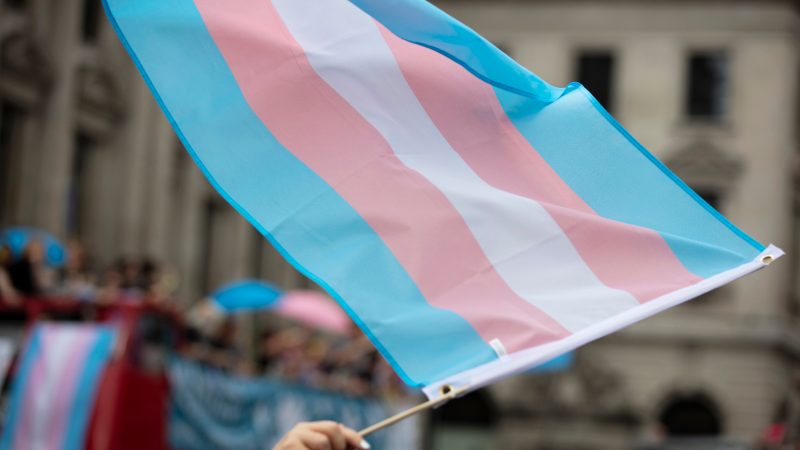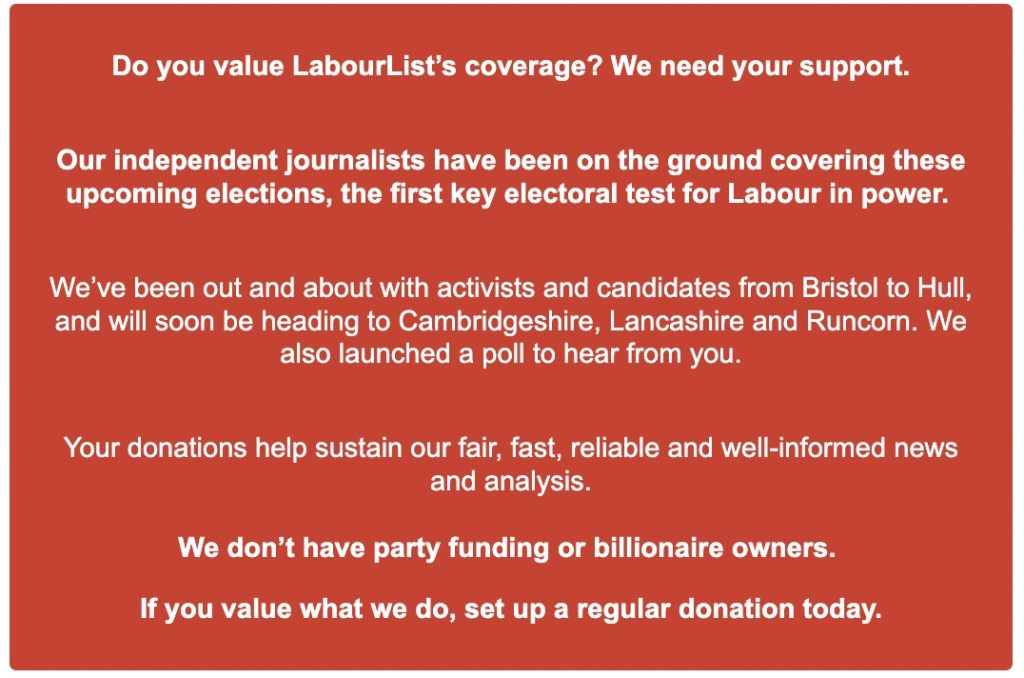
It is very welcome that the Supreme Court has reconfirmed that both direct and indirect discrimination, as well as harassment against trans people — whether because they are trans or perceived to be of a particular gender — is illegal.
However, the ruling on the current wording of the law, particularly in relation to the provision of services and the legal understanding of protected characteristics, raises as many questions as it answers.
No one disputes the need for same-sex spaces. Existing legislation has always provided for same sex spaces (and upholding same sex spaces has been in Labour’s manifesto consistently since 2017), but the core issue has been how the law determines sex – biologically or socially.
Read more: Government welcomes ‘clarity’ but Labour tensions flare
The Supreme Court has ruled that the Equality Act — which draws on the framework of the earlier biological definition in the Sex Discrimination Act — should be interpreted without regard to the Gender Recognition Act (GRA) which gave a social-legal definition of gender. In doing so, it has rendered the GRA functionally redundant.
In this regard the court has said in almost all instances sex in the law refers to biological sex. This ignores the fact that biological sex as we see it is not just one biological thing, but putting that argument to one side for a moment, practical concerns still remain.
The ruling effectively strips Gender Recognition Certificate of legal value
The Court rightly stated that it would be illegal to ask someone if they have a Gender Recognition Certificate (GRC). Individuals with a GRC will have their sex on legal documents in their acquired gender and are not required to disclose the fact they have a GRC.
So it is unclear how organisations are expected to lawfully discriminate between people on the basis of biological sex apart from by looking at a legal document. Would you only question people based on who ‘looks’ like a woman? What bits someone has?
This could easily lead to direct, indirect, or even harassment-based discrimination — all of which are illegal, as reaffirmed by the Court.
Since the Court has also said protections under the Equality Act apply regardless of whether someone has a GRC, this effectively strips the GRC of legal value. If all protections on the grounds of gender reassignment exist without a GRC it no longer provides any additional protection.
Scroll to keep reading the story below….
 Dual provision (separate provision for trans people), in theory, offers a solution, but in practice this is highly problematic — especially for small organisations or service providers. If a trans woman is employed as a woman with no legal requirement to disclose the GRC, but her biological sex is male, how would an employer manage a complaint from another person? Would they need to ask invasive questions or demand medical proof? What happens if she has undergone surgery?
Dual provision (separate provision for trans people), in theory, offers a solution, but in practice this is highly problematic — especially for small organisations or service providers. If a trans woman is employed as a woman with no legal requirement to disclose the GRC, but her biological sex is male, how would an employer manage a complaint from another person? Would they need to ask invasive questions or demand medical proof? What happens if she has undergone surgery?
Similarly, how do you prevent harassment of a trans man in female spaces, if he is perceived as male but required to use female spaces? These are not abstract concerns — they are very real and practical challenges that the court has failed to resolve. These questions are the exact reason we are having this debate.
What we need now is to build a clear legal framework
The root issue is the law has never clearly distinguished between sex and gender. These are not the same thing.
Sex refers to biological attributes, and there are cases where spaces or services must be organised according to sex. But gender relates to social identity, presentation and perception of others , and often, dignity and protection must be afforded based on how a person is perceived in social terms.
For most people, sex and gender align — but for others, they do not, and the law must be equipped to deal with this distinction and these cases. I do not see how this judgement does that except swinging the pendulum the other way.
For more from LabourList, subscribe to our daily newsletter roundup of all things Labour – and follow us on Bluesky, WhatsApp, Threads, X or Facebook.
What we need now is to build a clear legal framework that respects both biological needs and social identities.
This judgement does not offer that clarity — but as the Court itself stated, that is now the job of Parliament.
In more broad terms this judgement adds to the considerable stress that trans people and the wider LGBTQ community are currently facing. Globally the push back against allowing us to live our true authentic selves grows on a daily basis. We have seen in Hungary, Italy and the USA, to name but a few, push back on the rights of LGBTQ people, it seems we are going backwards after years of progress towards equality.
To those who are struggling after today’s judgement, I’d like to say I’m here for you, we are stronger together and we will keep fighting all forms of discrimination.
For my part I know that many Labour colleagues will be privately raising their concerns with Ministers and I will keep publicly speaking out, trying to raise ways to ensure everyone is protected and help in any and every way I can.
As the leading dedicated non-factional Labour media platform, LabourList is committed to facilitating a range of views from across the party on important topics like this one. We will also be publishing other comment pieces about the Supreme Court verdict in due course.
- SHARE: If you have anything to share that we should be looking into or publishing about this story – or any other topic involving Labour– contact us (strictly anonymously if you wish) at [email protected].
- SUBSCRIBE: Sign up to LabourList’s morning email here for the best briefing on everything Labour, every weekday morning.
- DONATE: If you value our work, please chip in a few pounds a week and become one of our supporters, helping sustain and expand our coverage.
- PARTNER: If you or your organisation might be interested in partnering with us on sponsored events or projects, email [email protected].
- ADVERTISE: If your organisation would like to advertise or run sponsored pieces on LabourList‘s daily newsletter or website, contact our exclusive ad partners Total Politics at [email protected].




More from LabourList
MPs, union leaders and organisations react to ‘bruising’ Gorton and Denton result
A gory night for Labour
‘SEND reforms are a crucial test of the opportunity mission’